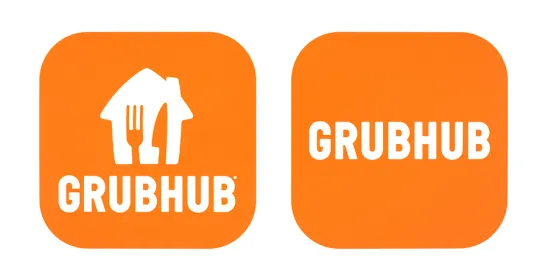Upholding the denial of a preliminary injunction motion in a trademark infringement dispute, the US Court of Appeals for the Seventh Circuit concluded that the district court did not err in finding that the trademark owner failed to show a likelihood of success on its reverse confusion theory. Grubhub Inc. v. Relish Labs LLC, Case No. 22-1950 (7th Cir. Sept. 12, 2023) (Lee, Jackson-Akiwumi, Wood, JJ.)
Relish Labs and the Kroger Company (Home Chef) create and deliver meal kits with pre-portioned ingredients that customers can cook at home. Home Chef began using its “HC Home Mark,” which is protected by five federal trademark registrations, in 2014. Home Chef has spent more than $450 million on advertising and reached $1 billion in annual sales in October 2021.

Grubhub is an online food ordering and delivery service that provides on-demand order management, dispatching and procurement. In June 2021, Grubhub was acquired by Netherlands-based Just Eat Takeaway (JET), an international food delivery company that typically combines its “JET House Mark” with the marks of its local brands.

Before finalizing its acquisition of Grubhub, JET filed an international trademark application for the JET House Mark. However, the US Patent & Trademark Office (PTO) examiner preliminarily rejected the mark, finding it to be “confusingly similar” to the HC Home Mark. JET did not respond and withdrew the application. After acquiring Grubhub, JET adopted the “Grubhub House Logo,” which combined the Grubhub logo with the JET House Mark. Grubhub introduced the new logo in July 2021 and has spent millions of dollars rebranding.

After receiving a cease-and-desist letter from Home Chef, Grubhub sued, seeking a declaratory judgment that its logo did not infringe Home Chef’s marks. Home Chef countered with a motion for preliminary injunction, which was referred to a magistrate judge. The magistrate judge recommended that the court grant Home Chef preliminary injunctive relief, but the district court rejected the recommendation and denied Home Chef’s motion, finding that it had not shown a likelihood of success on the merits. Home Chef appealed.
On appeal, the Seventh Circuit began by addressing which Grubhub mark was at issue: the JET House Mark alone or the Grubhub House Logo (which incorporated the logo portion of the JET House Mark). The Court noted that Grubhub had not used the JET House Mark without the Grubhub brand name in the United States and thus agreed with the district court that the accused mark was the Grubhub House Logo:

Turning next to Home Chef’s reverse confusion theory, the Seventh Circuit addressed the relevant four factors from its seven-factor test articulated in the 2017 case of Uncommon v. Spigen: the similarity of the marks, the strength of Grubhub’s mark, actual confusion and Grubhub’s intent.
As to the similarity of the marks, Home Chef argued that the district court erred by “painstakingly dissecting” the marks in a side-by-side comparison, rather than considering how a consumer would view them in the marketplace, and by ignoring the PTO’s preliminary determination against the JET House Mark. The district court had, however, found that the Grubhub word mark was the most salient portion of the accused mark and would differentiate the two marks. The Seventh Circuit acknowledged that the presence of a brand name is less relevant in the reverse confusion context because the consumer would not see Grubhub’s name when encountering a Home Chef product. However, the Grubhub brand name cannot be discounted entirely because the parties’ house marks and product offerings are not identical. Furthermore, the PTO’s finding that the marks were confusingly similar concerned the JET House Mark, not the Grubhub House Logo. Thus, the Seventh Circuit found that the district court did not clearly err in finding that Home Chef failed to show that the similarity of the marks favored a finding of likelihood of infringement.
The Seventh Circuit next considered the commercial and conceptual strength of the Grubhub House Logo relative to Home Chef’s protected marks. The Court noted that this was not a prototypical reverse confusion case, as both parties had expended significant resources on advertising and were well known. As a result, the district court did not err in finding that there was insufficient evidence that Grubhub would likely overwhelm Home Chef’s protected marks.
The Seventh Circuit also found that the district court did not err in assessing Home Chef’s evidence of actual confusion: an anonymous tweet featuring screenshots of the parties’ mobile app icons, and a Facebook message asking if Home Chef and Grubhub had merged. The district court had dismissed these as de minimis, putting greater stock in two Eveready consumer surveys provided by Grubhub.
Lastly, the Seventh Circuit turned to the issue of Grubhub’s intent in adopting the accused mark, which the district court weighed against likelihood of confusion. The Court noted that intent is largely irrelevant in a reverse confusion case, and that bad intent is not essential to prove infringement. However, where it can be shown that a junior user culpably disregarded the known rights of the senior user, that showing can support an inference of consumer confusion. In any event, the Court explained that the intent factor can never weigh against the claimant, as innocent infringement is still infringement. Therefore, the district court erred in finding that the intent factor weighed against a likelihood of confusion.
Considering the relevant factors together, the Seventh Circuit upheld the district court’s determination that Home Chef failed to make a strong showing of likelihood of success on the merits.



 />i
/>i

